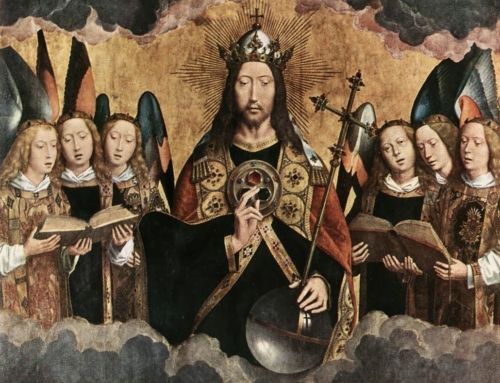Reading this review of Mary Gordon’s biography of Thomas Merton reminded me how much I have come to dislike Thomas Merton’s famous conversion story.
Of course I liked it at first. It has all the elements of a fine romance: his parents were artists who came to a tragic end. He was a poor lost orphan boy who traipsed around Europe, went to school in England, got into trouble at Cambridge and continued on his quest until he was captivated by the monastic life and went off to live his monastic romantic dream.
I fell for it. I was on the same sort of quest. Off I went to England to pursue the romantic dream of the life of a country parson. I was going to be a George Herbert kind of chap, living simply in my country parsonage, writing poems, visiting the poor and wandering off to my crumbling thousand year old church to ring the bell and kneel among the hassocks and cassocks and the musty dust of ages to mutter my prayers from a dog eared prayer book.
This is the stuff of immaturity–to run off after a romantic dream, and the religious romantic dream is the most seductive of all because, of course, one sees oneself as a courageous pilgrim–an adventurer who sets out in faith to follow the star. The religious romantic dream is the most seductive because it is so elusive and because one is being otherworldly and holy for pursuing it.
That must be right. Right?
Yes. OK and it is all well and good if you are in your twenties, but sooner or later something called reality bites back–or at least it should.
For Thomas Merton reality bit back when he realized how very difficult religious life really was and how tough it was to sacrifice his celebrity to his monastic vocation. For him reality bit back when he fell in love with a young nurse and couldn’t resist.
Mary Gordon records Merton’s friendship with Evelyn Waugh and how it soured when Waugh observed the clash between Merton the Monk and Merton the celebrity author. Waugh said monks should stick to making cheese and liqueurs and Merton retorted that Waugh should just say the rosary every day–especially if he didn’t like it.
I’m on Waugh’s side, and know what it’s like (on a much smaller scale than Merton) to be loved by people who read my stuff or think I’m marvelous at some speaking event. It is hard for it not to go to your head, and one of the main reasons I value parish life is that it keeps one grounded in what is real and local. That “celebrity” stuff is fake.
This is also why I’m increasingly suspicious of any kind of romantic Neverland religion. It’s not real, and because it’s not real it makes you unhappy.
It makes you unhappy because it is never good enough. The reality never fits the dream. I’ve seen this time and again as people go church shopping. Their local parish isn’t to their liking so off they go to some other kind of religion or some other denomination, but of course that church is never good enough for them either.
This problem is exacerbated by our mobile, consumerist society. We are used to driving wherever we want to get whatever we want whenever we want it in the way we want it. We do the same for church.
I had one friend who had a taste for traditionalism so off he tootled to the local parish that had good altar servers, nice music and high ceremonial. But it was the Novus Ordo shock horror! So he began reading more traddy literature online and started driving an hour and a half to attend a Fraternity of St Peter parish where everything was in Latin. Then when reality hit he grumbled, “They’re just a bunch of homos and liars too.” From there it was the Lefevbrists and then full blown sedevacantism.
It cuts the other way too. Off they go to some Protestant sect because they’re “not getting fed.” In fact it cuts most any way, and off they go to New Age Spirituality or some goofy self help program.
One of the marks of falling into religious Neverland is that the person always blames other people for their discontent. It’s usually the pope, the pastor the prelate or the priest, but it could be most anyone–the youth director, the school principal, the music director or the person who is running the soup kitchen badly.
They never stay to help solve the problems. Instead they scurry off to some new religious dream. Off they fly to Neverland.
Our holy father St Benedict spoke of such monks. He called them “gyrovagues” and says…
These spend their whole lives tramping from province to province, staying as guests in different monasteries for three or four days at a time. Always on the move, with no stability, they indulge their own wills, succumb to the allurements of gluttony…of the miserable conduct of all such, it is better to be silent than to speak.
Hold on now! I can hear you say. Didn’t you do just this–not only when you went to England, but when you left the Anglican church to become Catholic? Indeed I did, and the flight to England was a classic case of religious Romanticism. However, I can honestly say that my conversion to the Catholic faith had very little romanticism in it at all. I can remember after becoming Catholic someone from my Anglican days asking, “Now that you’re a Catholic do you like the Catholic Church?”
“No.” I answered. “If I was joining a church I liked I’d still be an Anglican. They have all the nice buildings, nice people, nice music, nice tea parties, nice liturgies and nice everything.”
To be a Catholic in England one has to be especially realistic. There’s no room for romanticism.
But! But! But! my local parish really is just awful! The music is dreary. The preaching is bad. The fellowship is non existent. Shouldn’t we find a parish we can really belong to? Isn’t good liturgy important? Isn’t it a good thing to find a parish with good teaching and good fellowship?
Yes. And the reality is that we live in an age where we shop for the church of our choice. The old idea of loyalty to your geographical parish just because that’s where you live is long gone.
However, when you do find the parish where you belong– stick with it. Be loyal. Get involved. If something is not to your liking, if you can do something about it, then get involved and do something about it. If you can’t do anything about it put up with it. Endure hardship as a good soldier of Jesus Christ.
Furthermore, it is not necessarily a bad thing to be on that quest, that search for the good church– but make sure that quest is a search for reality, not a romantic pipe dream of some religious Neverland. How to do this? Do not simply search for a place that suits you. Search for a place where you can settle. Most of all search for a place where you can serve.
How do you know when you have found that place? It is not when you’ve found Father Fabulous. It is not when you’ve found the most sublime Baroque fantasy of a liturgy. It is not when you’ve found the greatest, warmest fellowship with feel good music and a Starbucks in the lobby. It is not when you’ve found the church with the greatest youth work or the finest choir.
Do you want to know the secret? Underneath all the fine music, the great fellowship, the fantastic preaching or whatever else you are looking for, you will know you have found reality when you find a church that does two things: honors our Lord Jesus Christ in the Eucharist and honors the poor by serving them.
In coming into the Catholic Church I remember being hit over the head and in the heart by a quote from St Ignatius of Antioch in his letter to the Church at Smyrna:
“Consider how contrary to the mind of God are the heterodox in regard to the grace of God which has come to us. They have no regard for charity, none for the widow, the orphan, the oppressed, none for the man in prison, the hungry or the thirsty. They abstain from the Eucharist and from prayer, because they do not admit that the Eucharist is the flesh of our Savior Jesus Christ, the flesh which suffered for our sins and which the Father, in His graciousness, raised from the dead.”
Suddenly it struck me. All the religious phonies I had encountered (most especially the one in the mirror) either neglected the Eucharistic presence of the Lord or they neglected the poor or both.
If you find any church that makes their main priority something other than this–no matter how worthy and wonderful it seems to be–you’re flying off to Neverland and you might remember what you will find in Neverland:
Crocodiles. Pirates. Captain Hook.
Trust me.
I’ve been there.







I remember a friend who kept moving from one protestant church to another because he kept finding fault with the way his current church was doing things. I told him he would never find the perfect church and so we departed our separate ways. I would eventually return to the Catholic Church and have never looked back. I guess I learned to offer up my joys and sufferings and Started living according to what my father used to say. Do the best you can and honesty is the best policy.
A romantic view of religion and a desire for ecstatic or celebratory religious experiences is closely related to other concepts such as vainglory, pride and prelest (spiritual delusion). Humility and prayerful obedience to lawful canonical instruction are keys to avoidance of prelest.
But the poor are in Syria, Honduras, Central African Republic, the Philippines, not by any stretch in the United States, unless heroin addicts are the new poor. The homeless in the US need Medical care, not coats or tents or more food, those are to salve our souls. The forgotten in Nursing homes or VA hospitals need us even though they often smell and require mountains of patience, they are our poor. The Guatemalans and Haitians in my parish laugh, literally laugh when you talk to them about local poverty. I enjoyed Seven Story Mountain, nothing of Merton’s which followed. Merton was taken before he caused more harm than good, not the first or the last to go like that.
This hits so true to home for me, too. When we were Protestant, I thought we needed to follow Scripture as closely as possible and saw that in the conservative Mennonite churches (I grew up in an evangelical Mennonite church). After a year of study of all-things-conservative, I found that Scripture was just as twisted there. As I continued my search, eventually I became Catholic. However, I became immediately interested in the Traditional Mass (same song, different verse) and followed that thinking for several years. Then one day, after reading some of the SSPX materials, it occurred to me how much they sounded like my children when explaining to me why, in their especial case, they were right to disobey me. So, although I have a love for Tradition, branches of it I cannot sympathize with. Then, as time went on and my husband showed no interest in the Latin Mass and we lived three hours from the closest one, I realized that God was not opening that door to me. His Church had approved the Ordinary Mass and, as much as I love getting a chance to go when I can, I’ll never be able to be a part of the Latin Mass world. I’d never thought of my longing in context of a religious Neverland, but it really is and naming it such helps me put it into proper perspective. And, to be honest, I’m glad I’m not the only one who has been there.